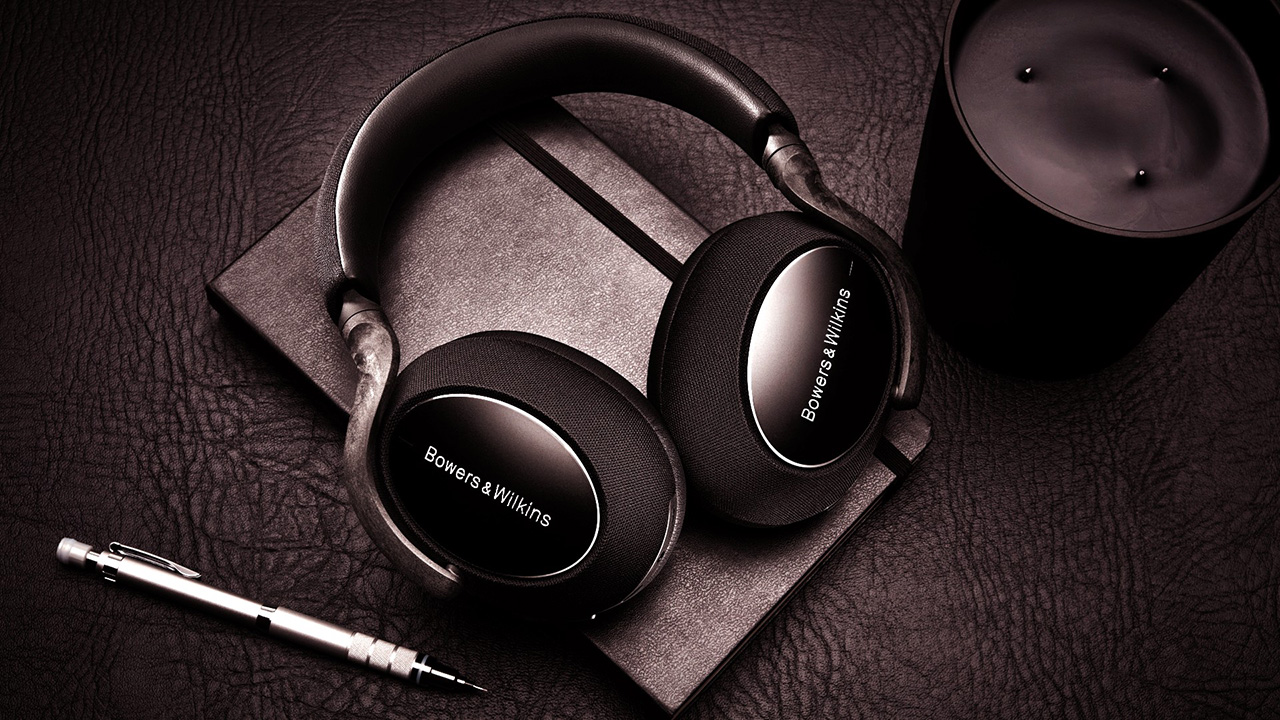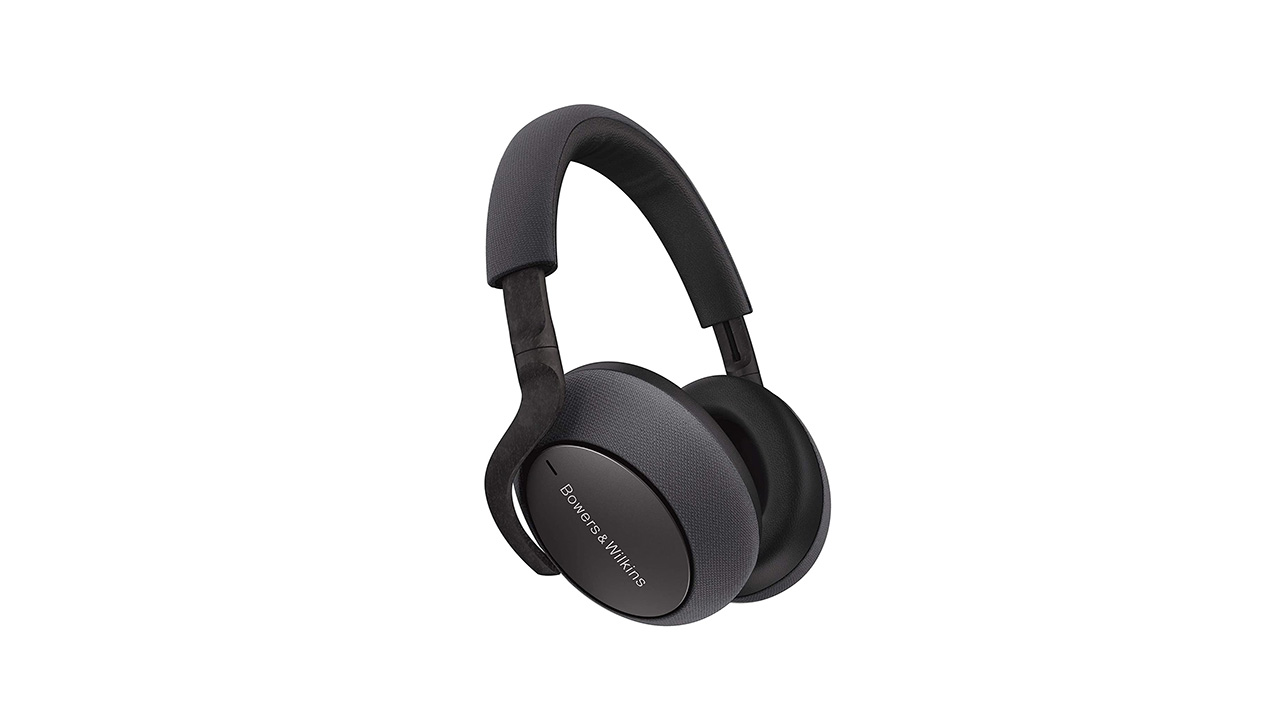When it comes to Hi-Fi heritage, Bowers & Wilkins have it in spades. The brand’s loudspeakers have long been renowned by audiophiles, and their 800 Series Diamond loudspeakers take pride of place in recording studios around the world, including Abbey Road and Skywalker Ranch.
Now the engineering team and tuning team behind those iconic floor standers are working similar magic with headphones, and the PX7 are their crowning glory.
looking for more inspiration? Then take a look at our guides to the loudest headphones, the best headphones for music and the best over-ear headphones.
Bowers & Wilkins PX7: Design
The Bowers & Wilkins PX7 are classically handsome, our review sample even more than most, being the Carbon Edition with matt black finish and throwback diamond-cut detailing on each ear cup.
They may appear chunky and substantial, but the PX7 are surprisingly comfy to wear. Weighing just 310g with memory foam ear cups, it’ll be some time before your ears begin to wilt.
The headphones ship with a handy hard carry case, USB C charging case and 3.5mm chord for wired connectivity.
Bowers & Wilkins PX7: Features
When it comes to Active Noise Cancellation (ANC), the Bowers & Wilkins PX7 are top drawer performers. They can intelligently sense the background environment and will automatically select the appropriate level and type of noise cancellation; just toggle Auto in the partnering app.
Here you’ll also be able to select your preferred strength of ANC (Low or High) or an Ambient Pass-Through. The latter allows specific external sounds to be heard without needing to take the headphones off, muting music when activated.
Usability is good enough. Proximity sensors are built into both ear cups, so tunes pause when you take them off and resume when they’re back in place. This Wear Sensor has adjustable sensitivity, so you can tweak as required.
Touch sensitive swiping, as favoured by some rivals, isn’t here. Instead, the Bowers & Wilkins PX7 offers control and navigation via physical buttons, which prove satisfyingly responsive.
The PX7 also offers push-button access to Voice Assistant Support. This can be either Siri or Google Assistant.
Battery life is a strong point. The Bowers & Wilkins PX7 will return upwards of 30 hours of playtime, and if you run low they offer quick charging via USB-C. A swift 15 minutes on the wall will give you around five more hours of valuable air guitar time.
They also handle the latest wireless codecs, including Bluetooth aptX Adaptive, which supports high-res wireless music transfer at 24-bit/48kHz, when used with a matching aptX-enabled smartphone.
There’s also the option to run the cans tethered with a 3.5mm cable, always useful for hooking up to an in-flight entertainment system.
Bowers & Wilkins PX7: Sound

The Bowers & Wilkins PX7 are smoother than Bryan Ferry on ice and are perfect for prog and guitar-orientated rock.
Just listen to Greg Lake’s vocal on King Crimson’s The Court Of The Crimson King, it’s as sweet as aged rum. These headphones do a marvellous job opening up the symphonic arrangement on this prog classic. There’s nothing constrained or congested about their presentation.
The Bowers & Wilkins PX7 create a soundstage that’s festival-wide, and utterly convincing. Instruments are given room to breathe, without sounding smooshed together.
The PX7 don’t over-cook bass either. There’s tightness to the bottom end which serves Amon Ararth well as they race into Twilight Of The Thunder God. The track rages like a storm, but the Bowers & Wilkins PX7 find melody among the mayhem. That’s no mean trick.
Deserving most of the credit for this musicality is their 46.3mm full-range drivers; they have a knack for revealing fine details that you might otherwise miss. That little electronic scratching, low in the left channel, that opens Teenage Dirtbag by Wheatus jumps forward in a way I haven’t noticed before.
But they require some running in before they’ll deliver really visceral dynamics. Straight from the box the Bowers & Wilkins PX7 can sound overly polite.
Bowers & Wilkins PX7: The alternatives
The main alternatives to these cans are the and the , both highly regarded in their own right, offering similar build quality and sonic finesse.
Sony’s WH-1000XM4 are the toughest competition. Currently cheaper than the Bowers & Wilkins PX7, they pack even more technology, in the form of advanced AI audio processing, and have noise cancelling that’s as good, if not a smidge better. But they can’t quite match the PX7’s definitive design and build quality.
Beyerdynamic’s Amiron over-ears have comparable audiophile appeal to the Bowers & Wilkins PX7, but they’re wired and open-backed. They may boast a sublime audio performance, but they’re designed to enjoy more at home than out and about.

